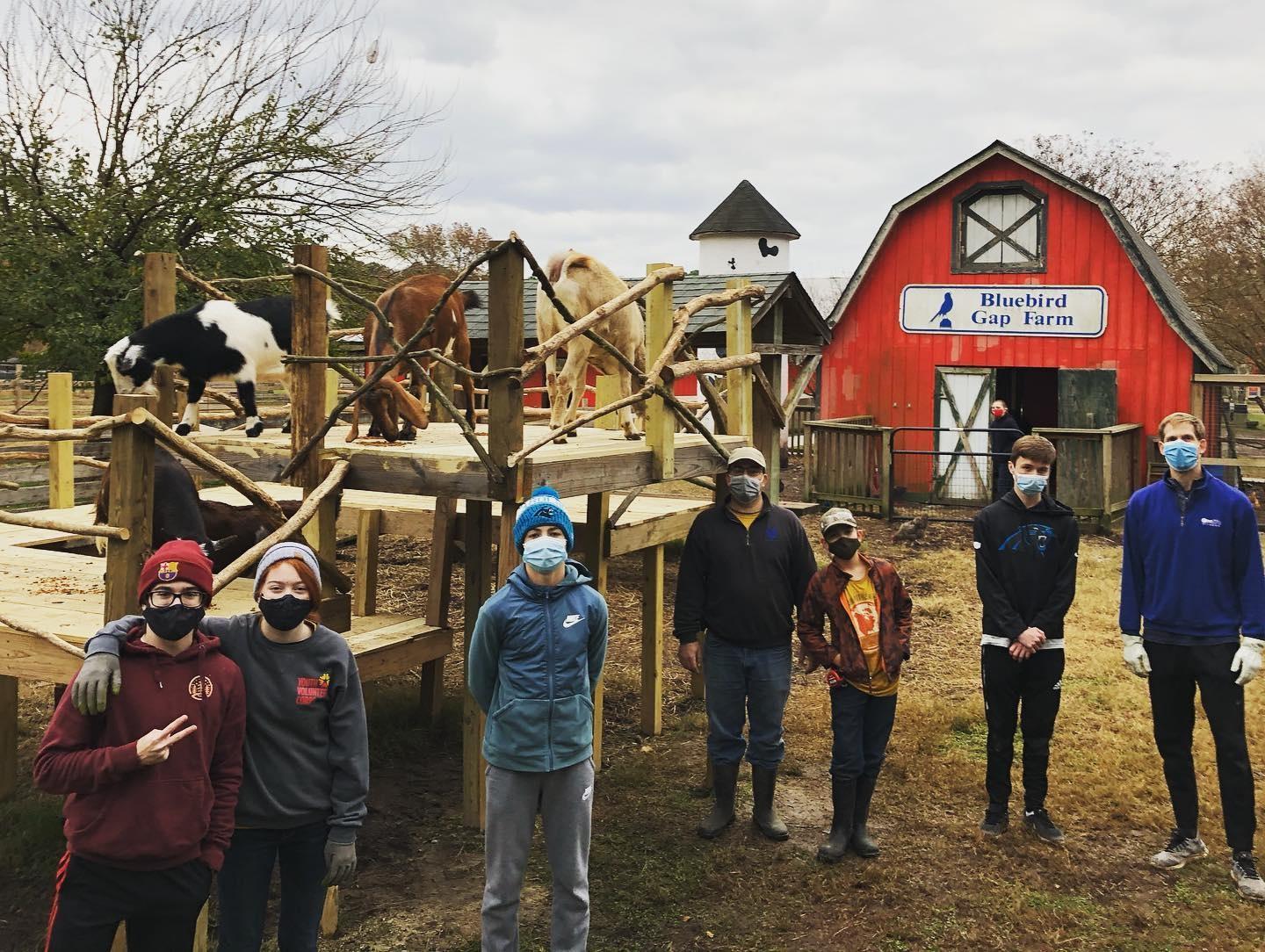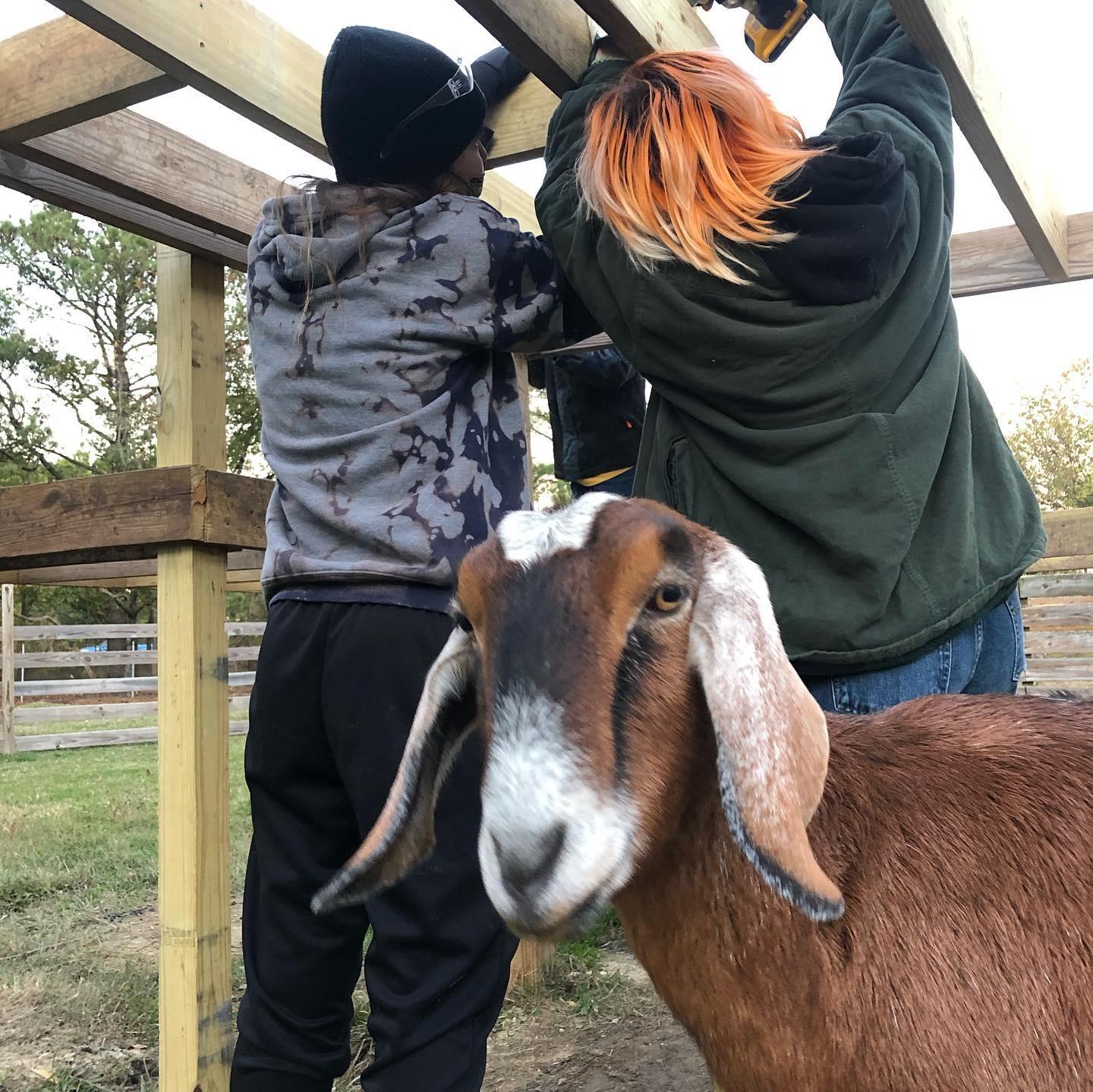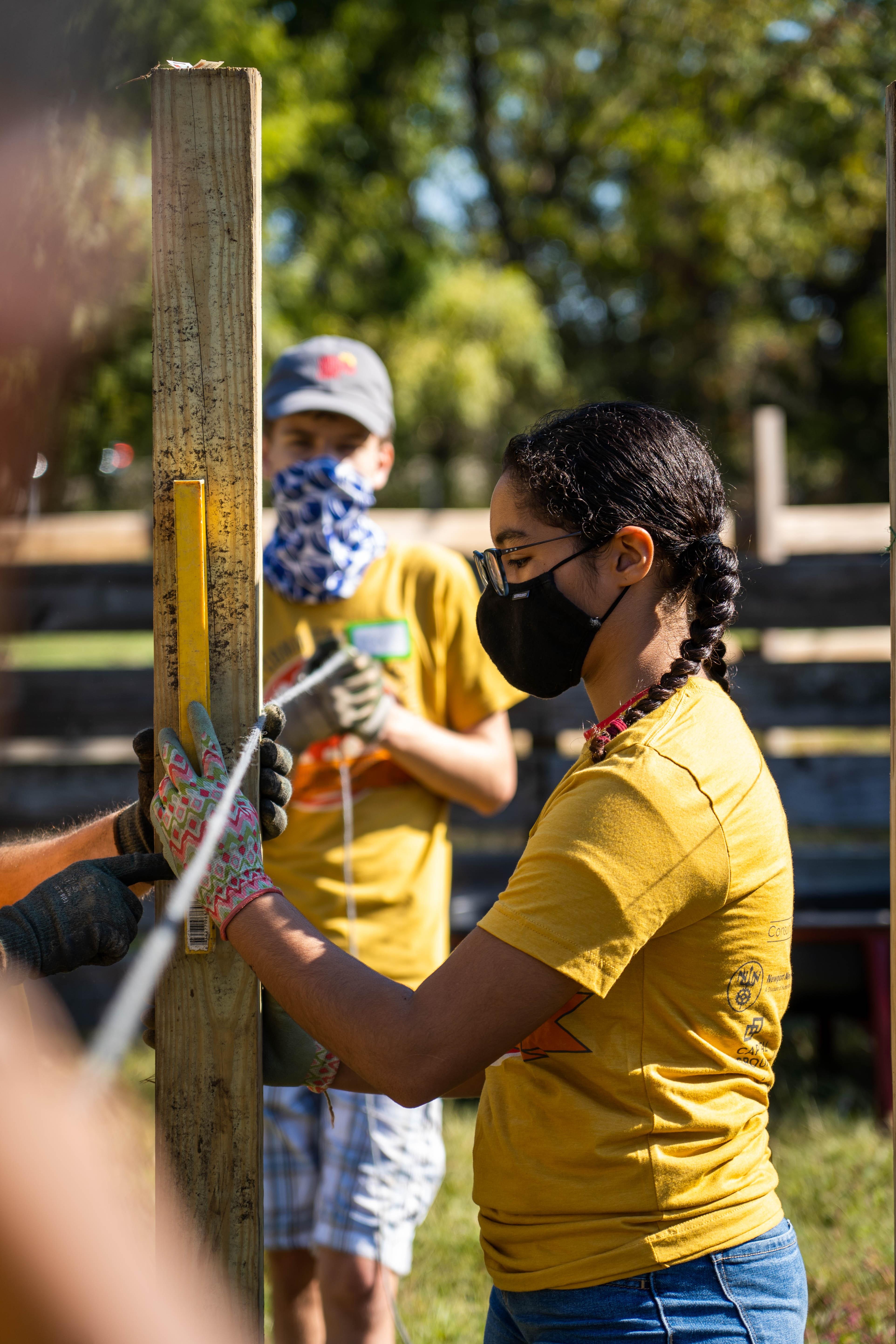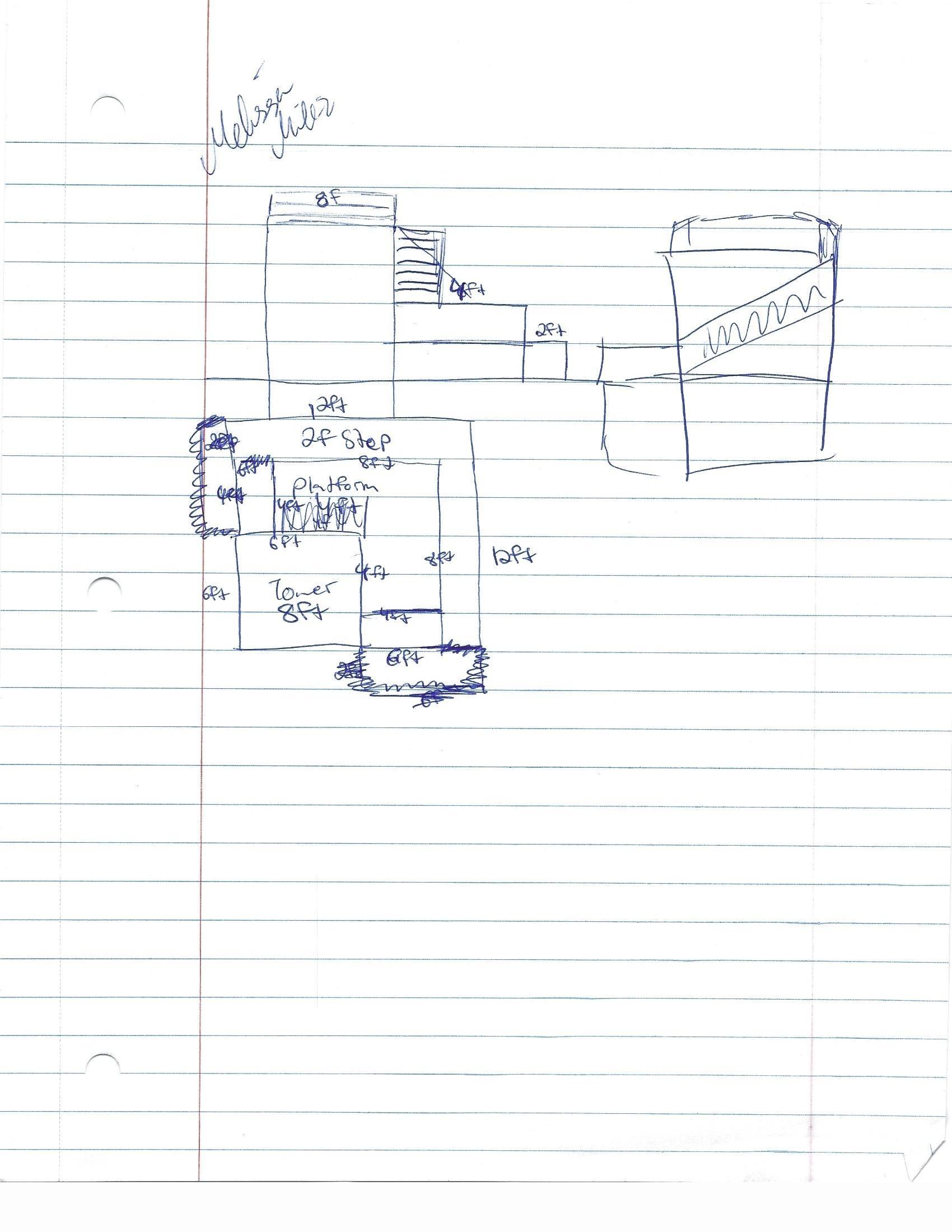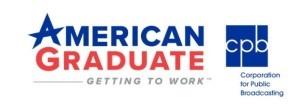G.O.A.T Career Learning Opportunities
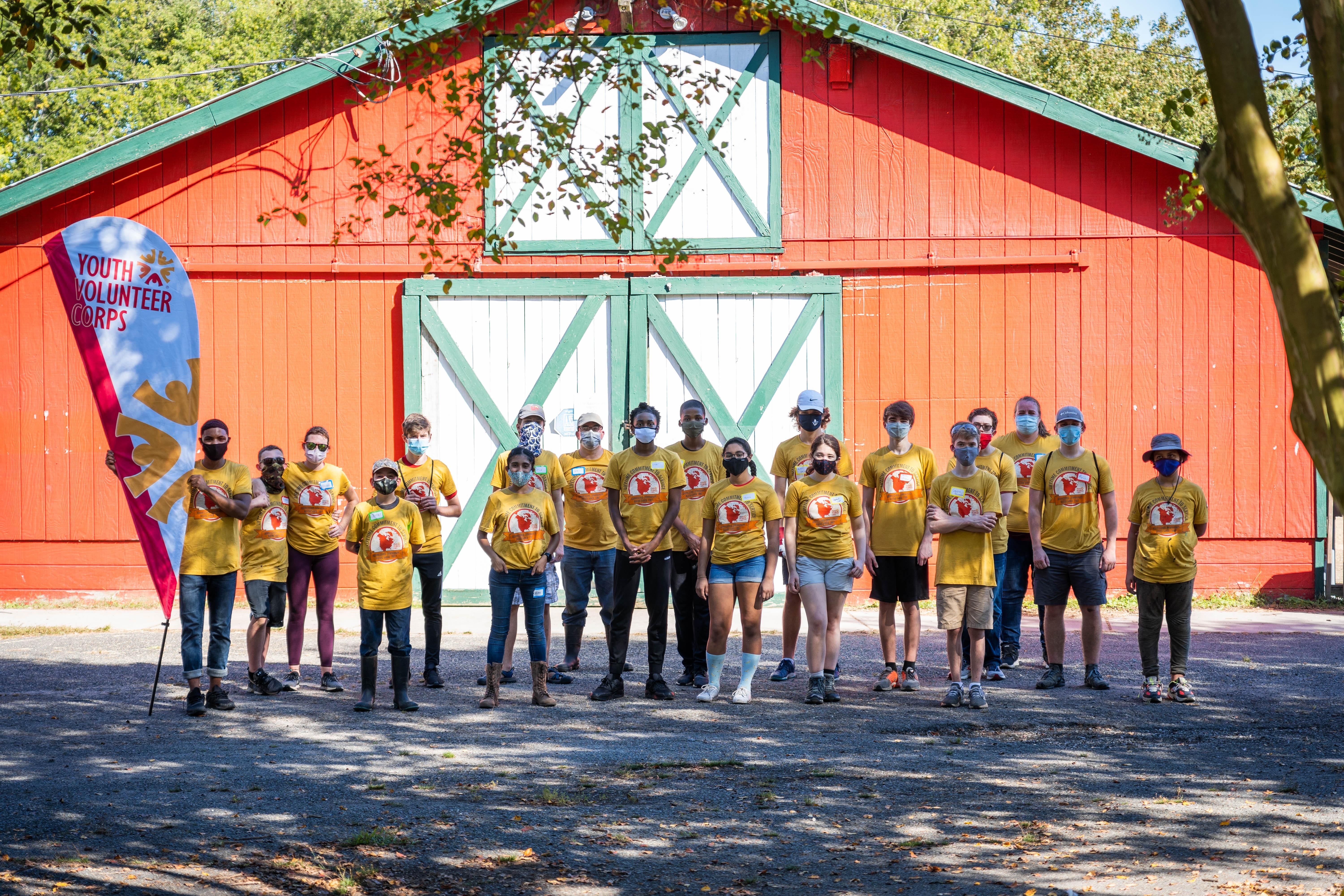

Whether you call it civic engagement, community service, or community engagement, studies have shown that being involved in their community is an important component for youth’s development and helps them prepare for adulthood. According to Teen Live Blog, there are a multitude of benefits:
Getting involved helps youth learn about issues affecting where they live and, as adults, they are more likely to vote and continue community involvement.
We recently had a conversation about service learning with WHRO’s very own Work Like A Girl Ambassador Pierrette Swan about this very topic. Pierrette has been a member of the board of Volunteer Corps Hampton Roads since 2018. We asked her and the executive director, Katie Morgan, more about the benefits of volunteer service for youth.
WHRO: Pierrette, why did you join the board of Youth Volunteer Corps Hampton Roads?
Pierrette: I did a lot of volunteer work in the community when I was young. I can tell by leaps and bounds how much it has helped me as an adult. It helped me with public speaking, work skills, responsibility. Because of how I benefitted, I’ve been passionate about young people volunteering. I know what a great experience it was for me so when I heard about the opportunity to join the board at Youth Volunteer Corps of Hampton Roads (YVCHR), it really spoke to me. It has a mission that is close to my heart.
WHRO: What are the life lessons youth can learn as volunteers?
Pierrette: In these scenarios, you are exposing youth to real life learning experiences that may not be available to them. This is important for all youth in all living situations, but particularly important for youth in historically underserved communities.
Katie: Youth who participate in meaningful community hands-on experiences learn a range of valuable life skills. It also helps to increase their adaptability; the skills learned can be transferred to other circumstances. And, because they are in real life situations, they pick up new hands-on skills such as STEM, construction and gardening. They see the application from the classroom to the real world. For example, with community gardening programs, youth see the food they grow helps to actually feed people who live in a food desert and have limited resources. So not only are they learning about the science of growing plants, but the definition of a food desert and the challenges people face who live there. Our task is making sure we are integrating school learning with the experience of serving and also bringing in the real world experience of others so they understand the impact they are making.
Pierrette: Also, while they are working, they are learning so much more than just the hands-on skills. Whether they are filling sandbags in preparation for hurricane season or cleaning the beach on Fort Monroe/Hampton, they are also learning history and how the work they do impacts the community.
WHRO: How many kids do you serve?
Katie: We just launched a new program year and last year, despite COVID, we had 350 unique volunteers and collectively served over 4,600 hours/220 project days in our Hampton Roads community.
WHRO: How do you decide on projects?
Katie: This year we have 12 school clubs. That is where they do the project planning. They take classroom skills and apply in terms of researching a cause or need, decide how they want to impact that need, and do the planning, they budget and produce a project that they can all work on together as a team.
We also have episodic projects with our community partners that are hosted on evenings and weekends. The youth just sign up and we incorporate service learning lessons. They learn new skills, meet peers outside of their school and neighborhood, and build up their network.
WHRO: How does YVCHR help prepare kids for careers?
Pierrette: They definitely are able to learn valuable soft skills. I used to work in an HR position hiring young people and I saw that many of them did not have the needed, and important, soft skills. YVCHR provides opportunities to learn about being on time, to do what you’re asked to do, being responsible.
Also, they learn careers they may want to go into. Recently we had an author, editor and publisher in a virtual meeting, and they heard what it takes to write and publish a book. Kids often say they are interested in the careers they are exposed to.
Katie: We feel that because of the situations they are exposed to in the service projects, we often hear they want to go into fields such as health care.
WHRO: Can you share a success story.
Katie: We have a student getting her social work degree. She started with YVC from an early age and says she was called to do this and wants to continue serving her community.
We had a budding gardener in our weekly gardening club. He then went home and created an incredible garden in his back yard. His mother showed us photos of his amazing work. His neighbor ended up asking for his help. He now wants to start a community garden.
And sometimes it helps them learn what they don’t want to do. That is a success too.
WHRO: Tell me about a specific project:
We had a Goat City Committee for youth who were interested in designing a playground for the goats at Bluebird Gap Farm. They met, did sketches, brainstormed, and consolidated ideas into one structure. For days, the group went out there and they built a three-tiered playground. The pictures speak for themselves.
We ended the conversation by chatting about how all three of us had meaningful volunteer service experience as youth and shared how those experiences have shaped who we are today.
Both Pierrette and Katie are so excited to announce that, though their services in the past have been limited to the peninsula, they are now opening clubs in South Hampton Roads. They are having a kick-off on October 17, 2021, at Topgolf in Virginia Beach. For more information go to https://www.yvchr.org/.
